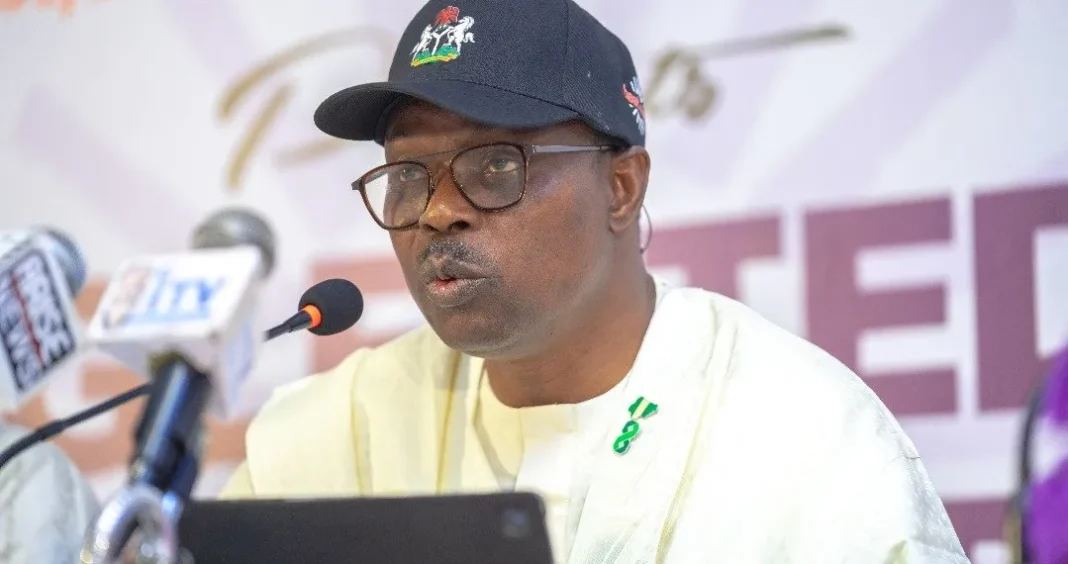The Federal Government of Nigeria has announced a major nationwide initiative to revitalise Nigeria’s Primary Health Care Centres (PHCs), positioning them as the cornerstone of its strategy to achieve Universal Health Coverage for all citizens.
The pledge was delivered by the Minister of State for Health and Social Welfare, Dr. Iziaq Salako, during his address on the second day of the 2025 Joint Annual Review of the Health Sector held in the nation’s capital on Thursday, 13th November, 2025.
Minister Salako outlined a comprehensive plan to rebuild the sector through “improved infrastructure, expanded workforce, and integrated service delivery.” He stated that the ultimate goal is to ensure “every Nigerian, regardless of location or income, can access quality basic healthcare.”
Significant Challenges Amid Progress
While acknowledging progress, the minister presented a sobering assessment of the current state of Nigeria’s over 30,000 PHCs, stating they are “still far from optimal.”
He cited critical staffing shortages, revealing a Doctor-to-Population ratio of 1:5,000, starkly contrasting the World Health Organisation’s (WHO) recommendation of 1:600. The Nurse-to-Population ratio is similarly low at 1:2,000, against a WHO benchmark of 1:300.
“This is further compounded by the inequities in the distribution of health workers, where 75 per cent are concentrated in urban areas, serving 45 per cent of the population,” Salako noted.
However, he highlighted tangible improvements through the efforts of the National Primary Health Care Development Agency (NPHCDA) and its partners. He reported that PHC governance has been strengthened in 31 states and over 400 Local Government Areas. Furthermore, facility upgrades have seen the average quality score of PHCs jump from 42 per cent to 67 per cent.
Maternal and Child Health Gains, But Burden Remains High
The minister pointed to positive trends in Reproductive, Maternal, Newborn and Child Health (RMNCH) services. Data from the Nigeria Demographic and Health Survey (NDHS) shows skilled birth attendance has increased to 53 per cent from 43 per cent in 2018, and full immunisation coverage has risen to 39 per cent from 31 per cent.
These efforts, he said, have averted an estimated 215,000 maternal and child deaths.
Despite these gains, Salako sounded a note of caution, stressing that Nigeria still bears a disproportionate share of global childhood and maternal deaths.
“Nigeria still accounts for approximately 14 per cent of global maternal deaths and nine per cent of under-five deaths, though we represent only 2.6 per cent of the world’s population,” he declared.
New Commitments and Link to Health Insurance
To address these gaps, the minister announced new commitments to scale up PHC services, including targeted workforce deployment, improved facility readiness, and stronger referral systems.
“As we enforce compliance with minimum standards of care, we will deploy the different cadres of health workers needed to ensure service delivery fidelity and consistency,” he stated.
Crucially, Salako linked the PHC revitalisation directly to expanding the national health insurance scheme, outlining plans for “mandatory subscription,” scaling up coverage for vulnerable groups, and expanding the benefit package to include catastrophic health conditions and non-communicable diseases.
In a final call to action, the minister urged all tiers of government and development partners to renew their commitment to building a resilient health system where facilities are equipped, health workers are motivated, and communities are active participants in their own health.

